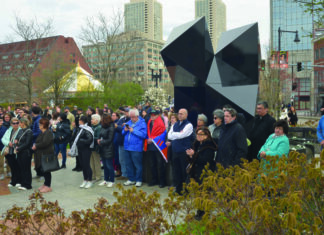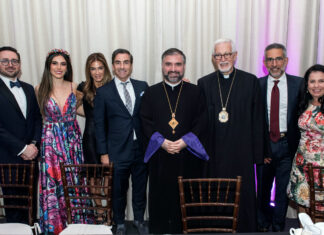By Betty Apigian Kessel
DETROIT — Who better than a specialist in the field of mental health to research and write about the events of the Armenian Genocide?
The Tekeyan Cultural Association (TCA), Detroit Chapter on Saturday, April 9, hosted Dr. Rita Kuyumjian, assistant professor of psychiatry at Montreal’s McGill University to do her presentation of her three-volume work titled Trilogy: April 24, 1915 Before and After — The Lives of The Survivors. The event was held at the Hagopian World of Rugs Showroom in Birmingham.
Kuyumjian was introduced by Edmond Azadian, who asked for a moment of silence for Edgar Hagopian, the recently-deceased owner of the showroom which hosts many literary and musical events for the local Armenian community.
Azadian also made a profound statement, saying, “Turkish Prime Minister Recep Erdogan is always asking for proof of the Genocide and now it is here in Dr. Kuyumjian’s books.”
Allah himself could tell the Turks to acknowledge their crime against mankind and they still would persist in denying their culpability.










